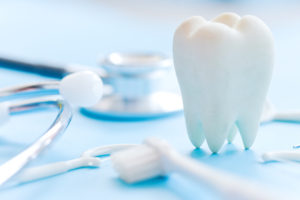Dental Work and Pregnancy
 If you are worried that dental work during pregnancy negatively affects the fetus, remember it is exactly the opposite! Dental care before and during pregnancy actually guarantees both your and your baby’s well-being. Hormonal changes that occur during pregnancy cause the gums to swell and bleed, which may lead to trapped food causing increased irritation to your gums while also increasing the risk of gum infections.
If you are worried that dental work during pregnancy negatively affects the fetus, remember it is exactly the opposite! Dental care before and during pregnancy actually guarantees both your and your baby’s well-being. Hormonal changes that occur during pregnancy cause the gums to swell and bleed, which may lead to trapped food causing increased irritation to your gums while also increasing the risk of gum infections.
What is safe to do?
All emergency and regular dental treatments by family dentistry such as cavity fillings, crowns, root canals, tooth extractions, and dental cleanings can be done during pregnancy. It is recommended to complete such dental work, as well as have regular check-ups, since it helps reduce the risk of infections and gum disease. You can see here to get to a dentist to have your teeth checked and more.
Dental work will be easier to do during the second trimester, as the first trimester is the most critical in the development of the fetus and it may be challenging to lay on your back for an extended period of time once in the third trimester. You can get dental implants after your first trimester. However, it is better to wait until delivery. If you need to get them, take expert advice from Cutting Edge Periodontist providing all on 4 dental implants. Make sure that you know everything about it to avoid complications.
Cosmetic procedures such as teeth whitening and elective treatments should be postponed until after the baby has been born to avoid exposure to any risks. You can avail the best cosmetic dentistry at Eccella Smiles post-delivery.
Morning sickness and rising hormone levels put you at risk for periodontal disease and tender gums—also called pregnancy gingivitis. Follow regular oral hygiene procedures, but you may want to consider using flavor-free toothpaste and/or mouth rinse. Expert advice like what you will find out here regarding the right dental products can help. You can rinse out your mouth with just water if you have frequent vomiting. Consult your dentist for suggested brands of toothpaste, mouth rinse, and other products.
Anesthesia, Medications, and X-rays
Lidocaine is most commonly used to induce anesthesia during dental work. Though it does cross the placenta once administered, studies have not yet suggested definite adverse effects. The anesthesia you receive should be as little as possible, but it is most important for you and your baby to be stress-free and comfortable.
Antibiotics that may be prescribed during dental work to avoid infections, such as penicillin, amoxicillin, and clindamycin, have not been proven as posing a risk to the fetus.
Most x-rays used in dental diagnoses do not have a radiation level high enough to cause any problems; your dentist should take appropriate care to shield your abdomen and thyroid.
More